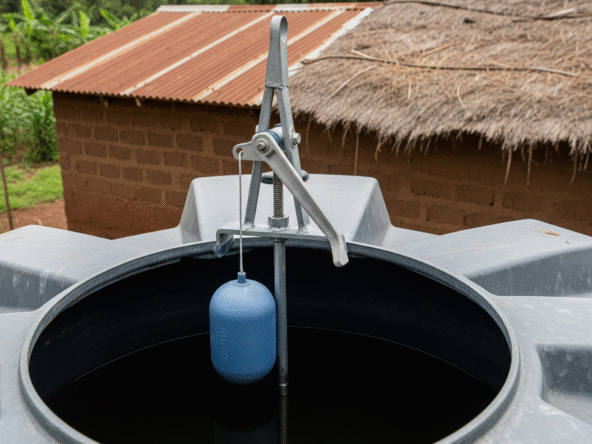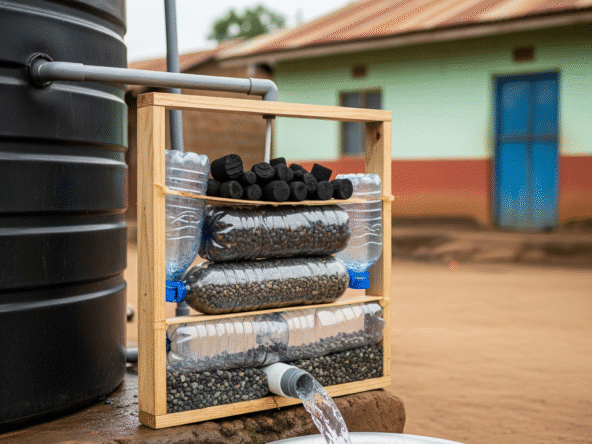While water storage is a primary concern for many homeowners, a property’s needs can extend to storing other vital liquids. From ensuring a steady energy supply to managing waste, various types of tanks play crucial roles in residential, commercial, and agricultural settings. Understanding these essential storage solutions, including where to find oil tanks for sale or fuel tanks for sale, is key for comprehensive property management.
This guide explores the diverse world of tanks beyond just your standard water tank, highlighting their purposes and what to consider when acquiring them for your property in Kenya, the US, or anywhere across the globe.
Fuel and Oil Storage: Powering Your Property
For properties off the main grid, or those requiring specific machinery, on-site fuel and oil storage is indispensable.
1. Oil Tanks for Heating and Generators
Many homes, especially in colder climates or rural areas, rely on heating oil.
- Purpose: Stores heating oil for furnaces or diesel for backup generators.
- Types: Commonly found as steel water tanks or durable poly tanks (polyethylene).
- Placement: Can be above ground or, less commonly for heating oil, underground water tank style, though this usually refers to water.
- Consideration: Regular maintenance is vital to prevent leaks. Look for reputable suppliers when searching for oil tanks for sale.
2. Diesel Tanks for Vehicles and Equipment
For farms, businesses, or properties with multiple diesel vehicles and machinery, having a dedicated diesel tank on site offers convenience and often better pricing.
- Purpose: Stores diesel fuel for tractors, generators, trucks, and other heavy equipment.
- Material: Often steel water tanks (adapted for fuel) or specialized heavy-duty poly tanks. An aluminum fuel tank might be used for smaller, portable solutions.
- Safety: Fuel storage carries specific risks. Adhering to local regulations for storage and spill prevention is paramount. Research sellers carefully when looking for diesel tanks for sale.
3. Bunded Tanks: Enhanced Safety and Compliance
Safety is a top priority, especially with flammable liquids. Bunded oil tanks are designed with this in mind.
- Definition: A bunded tank is a tank within a tank. The outer tank acts as a containment area, capable of holding 110% of the inner tank’s capacity.
- Benefit: Provides secondary containment, preventing spills and leaks from contaminating the environment or property. This is often a legal requirement for commercial or larger residential installations.
- Use: Primarily for oil tanks and diesel tanks, ensuring environmental protection. When seeking fuel tanks for sale, prioritize bunded options for safety.
4. Gasoline Transfer Tanks
For smaller-scale fuel needs, a gasoline transfer tank provides portable solutions.
- Purpose: Safely transports gasoline for lawnmowers, ATVs, or other small engines.
- Portability: Designed to be moved, often mounted on trucks or trailers.
- Safety: Must be properly vented and designed for gasoline storage to prevent hazards.
Other Specialized Tanks on Your Property
Beyond fuel and water, several other tanks might be part of your property’s infrastructure.
1. Pressure Tanks and Well Tanks
For homes with private well water systems, these tanks are critical for water delivery.
- Pressure Tank: A pressure tank or well pressure tank works with a well pump to store water under pressure, delivering it to faucets without the pump constantly running. This protects the pump and provides consistent water flow.
- Well Tank: Often used interchangeably with pressure tank, it’s the component of the well system that stores pressurized water.
- Expansion Tank: Often confused, an expansion tank is typically part of a hot water heating system, absorbing excess pressure caused by water heating.
2. Septic and Grey Water Tanks
Managing wastewater is a vital part of property ownership, especially in rural areas.
- Septic Tanks: Primary component of an on-site wastewater treatment system, holding and treating sewage.
- Grey Water Tank: Collects water from sinks, showers, and laundry (not toilets) for reuse in irrigation or toilet flushing. This is a sustainable solution for water conservation.
3. Commercial and Industrial Tanks (Briefly)
While your focus is residential, remember that large steel water storage tanks or massive poly water tanks are also used in industrial settings or for municipal water supply. Concepts like IBC tank (Intermediate Bulk Containers), sometimes repurposed for water, are industrial-grade water storage containers for various liquids.
Finding the Right Tank Supplier
When sourcing any of these tanks, whether it’s a water tank with pump or a specialized diesel tank, consider:
- Reputation: Look for reputable suppliers of water tanks for sale or oil tanks for sale.
- Compliance: Ensure tanks meet local safety and environmental regulations.
- Installation: Factor in delivery and professional installation, especially for large or underground water tank types.
- Pricing: Compare water tank price from various vendors, and ask for quotes for Kentank prices or Roto tanks prices if specific brands are desired.
Understanding the various types of tanks and their specific functions empowers property owners to make informed decisions, ensuring efficiency, safety, and reliability across all their liquid storage needs.



